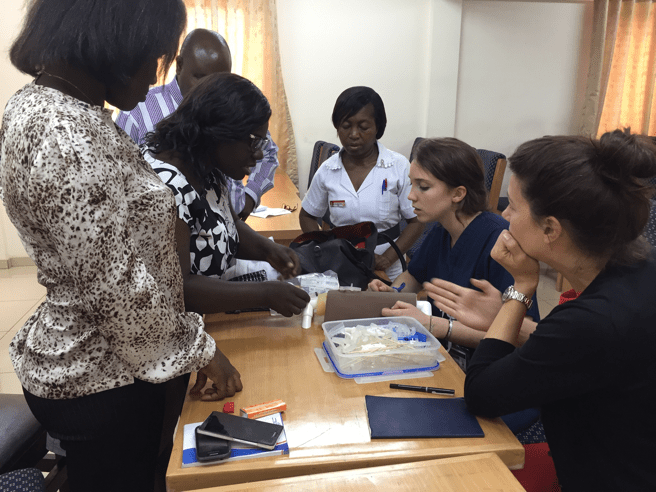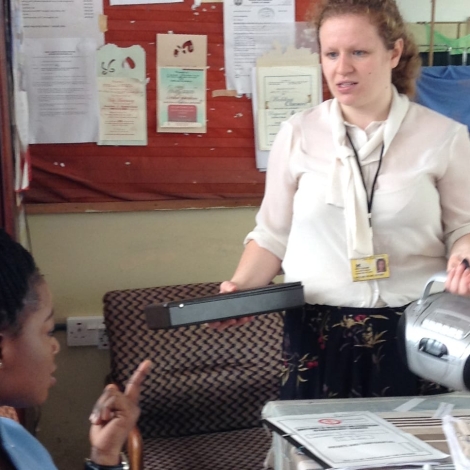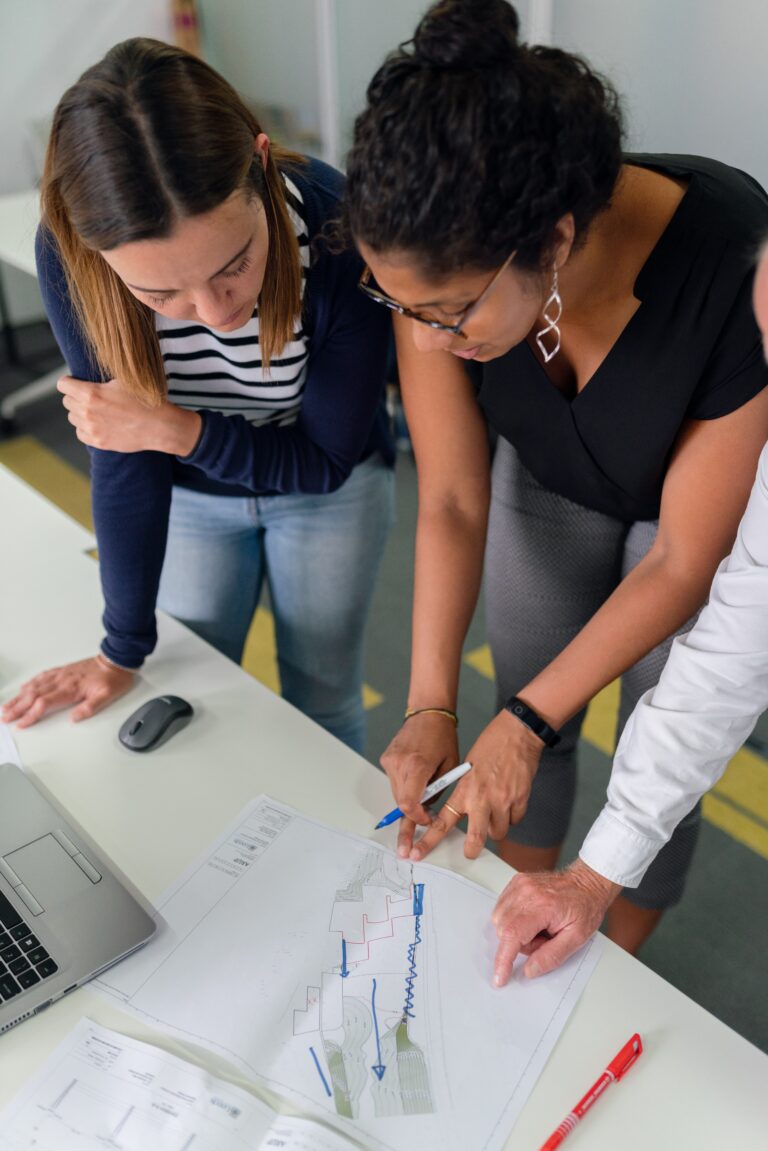Caroline Soyars guides students at the University of Michigan’s Global Health Design Initiative as they develop technology that meets healthcare challenges in underserved communities around the world. The program trains a new generation of engineers and designers to collaborate with stakeholders to define problems and solve them. Projects underway now include a device that measures and collects blood lost after childbirth to diagnose post-partum hemorrhage; a tensioning device that fits over the calf and stimulates blood circulation to prevent venous thromboembolism, life-threatening blood clots that can lodge in the lungs; and a progressive rehabilitation device for patients with hand and wrist injuries to use at home in between physical therapy appointments. Students develop these products in tandem with healthcare providers and other stakeholders that will use them in Ghana and other emerging economies around the world.
For details on one student-led project, please see our report: An obstetric device in development treats postpartum hemorrhage in low-resource medical centers
I’m championing this idea of designing with communities rather than for communities without knowing the context. It’s very much in line with what E4C is trying to do with their resources.
“The program provides students at a very early stage in their careers the experience of addressing global health challenges,” says Caroline, the program manager and a former Expert Research Fellow at Engineering for Change.
Students experience the entire cycle of product development. They start with summer fieldwork at clinics in Ghana where they identify a need that new technology can meet, then they carry it through development phases to culminate in a senior design capstone project.
“Our program champions this idea of designing with communities rather than for communities without knowing the context. It’s very much in line with what E4C is trying to do with their resources. The fact that it was so cross-disciplinary in the fellowship is something I can carry forward and share the value of that with the students,” Caroline says.
Learn more about essential technologies for underserved communities in E4C’s Solutions Library
Caroline graduated from E4C’s inaugural cohort of Research Fellows in 2016, then returned in 2017 as an Expert Fellow to guide the new cohort. Her specialty was global health, arriving at E4C with an undergraduate degree in biomedical engineering and working as a fellow in Baylor Global Initiatives at Baylor College of Medicine in Houston, Texas.
During her two fellowships with E4C, Caroline investigated global health products for E4C’s Solutions Library. Her work grew the database of solutions to life-threatening health risks in low-resource settings. Entries in the Solutions Library are carefully researched and standardized for easy comparison side by side with similar products. The goal is to help decision makers choose the best products for their work. The database also serves as a starting point for research into the design of any new product that meets basic needs in underserved communities. That is how Caroline employs the Solutions Library in her work now, steering students toward the resource as they begin to develop their prototypes.
It’s a way for people coming out of college to understand what exists and how you can take these passions that aren’t necessarily a direct pathway to a certain job and make something of it.
“We introduce students to the Solutions Library as a resource during their prep work before they travel. It gives them a sense of what exists and the contextual factors surrounding the development and implementation of global health technologies,” Caroline says. “Once the students have selected a clinical need to pursue as a capstone design project, the student design teams continue to define the need through the development of product requirements and engineering specifications, using E4C’s platform as a benchmark to understand what has been developed and what previous designers and engineers have used. They can then begin to identify gaps in existing solutions to inform the development of a proof-of-concept prototype that meets user needs.”
The experience of working as an E4C Fellow has enhanced Caroline’s work at the Global Health Design Initiative, she says. She has been able to use skills she learned working as an Expert Fellow in her current work to mentor students. But the Fellowship is also a stepping stone stone for students and recent graduates who were exposed to global development engineering in college, Caroline says.
“It’s a way for people coming out of college to understand what exists and how you can take these passions that aren’t necessarily a direct pathway to a certain job and make something of it. It’s an opportunity for continued engagement in this space that also provides monetary support,” Caroline says.
Those who are interested in applying to E4C’s Research Fellowship can find details on our Fellowship page. We look forward to hearing from you.

A University of Michigan student conducts usability testing with nurses and midwives at Komfo Anokye Teaching Hospital in Kumasi, Ghana. Photo courtesy of Caroline Soyars

